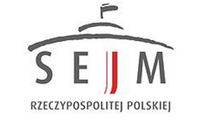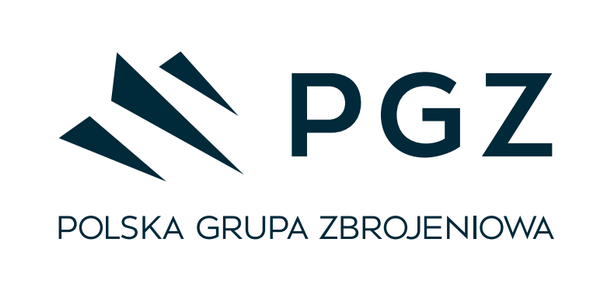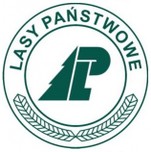Hybrid activities in the Baltic Sea as part of the economic struggle - Nobilis Media
Main menu:

Hybrid activities in the Baltic Sea as part of the economic struggle (analysis)
Kmdr por. rez. dr Jarosław Keplin
Ensuring the security of the state in the 21st century is particularly important. The globalization process means that in addition to the unquestionable benefits resulting from the functioning of states in the geopolitical environment, we are dealing with new threats, the extent of which is not limited by geographical barriers, political and economic systems. The pressure of globalization means that in today's world countries are not able to function economically independently, and the interdependence between them can be the cause of crises or conflicts. In addition, as a result of growing interdependencies between countries, threats have emerged that have not been observed so far, which determines the need for a broader view of security issues.
Domino effect
According to many researchers - the security of states is increasingly compared to "dominoes" - moving one causes an avalanche fall of others, and the relationships between them are described as "connected vessels". In addition, attention is drawn to the fact that currently the society is more susceptible to threats related to the development of civilization, political, economic, social and information tensions.
It should be emphasized that the potential aggressor, conducting hybrid activities in the areas of state functioning, selects the most vulnerable and least resilient and uses them in the most unpredictable way, and the scenario of actions once taken will be modified and will be adapted to their resilience and measures taken. Threats resulting from such action result from a variety of situations and may have different nature and scope.
Based on an analysis of related issues with maritime security considerations, it can be argued that for each of the Baltic Sea coastal states - the level of security perception is individual and should be considered in relation to a specific subject of international law (state). It is worth emphasizing that criteria of such security are inseparably connected with the issue of state security. By analyzing the problem under consideration, it is impossible to create uniform criteria for all countries. However, one should be aware that each macro-region, micro-region and even every country has its own center of gravity for national security. For some countries, such a center of gravity can be energy resources, e.g. fossil coal, natural gas, oil, or other, such as water, metal ores or armed forces. In turn, the non-material means of gravity may be the aspirations of states, as well as political groups and minority groups, the permanence of the alliance or the will of the people to resist threats.
The Baltic Sea is a reservoir of increased competition
In addition, the progressing globalization means that in meeting their goals, countries encounter many entities, both state and non-state, which include: non-governmental organizations, transnational corporations with dispersed anonymous ownership, i.e. non-state elements functioning in the "global" supranational or transnational space that implement your interests. Given that the Baltic Sea region and its associated benefits, such as the implementation of maritime transport, the development of seaports and shipbuilding, fisheries and fish processing, and tourism - constitute the potential and development opportunities of coastal states. Researchers such as M. Będźmirowski and R. Kościelniak point out that, despite maintaining good relations with neighboring countries, there are a number of situations that may create sources of tension, e.g. fishing restrictions, the course of the fairway and anchorages in Świnoujście, conflicts related to activities Polish ferries, the problem of digging the Vistula Spit, dispute over the Nord Stream pipeline bypassing natural transit countries - Poland and the Baltic republics, as well as the almost thirty-year dispute between the Republic of Poland and the Kingdom of Denmark, which was only resolved in 2018.
These potential sources of conflict are unlikely to turn into a local conflict, but they can be part of hybrid activities whereby these entities will use a wide range of political, economic and information tools to influence states' decisions, intimidation and undermining their credibility in the arena international. This results in the aggressor trying to secretly achieve strategic and political goals, often at the expense of other actors on the international scene. It should be recalled that, in contrast to internal waters and the territorial sea - the Exclusive Economic Zone (EEZ) of Poland is functional. The specific nature of this zone's legal status is, therefore, on the one hand the exercise of sovereign rights by coastal states and the parallel existence of third-country rights on the other. In addition, one more important point should be mentioned - the Natura 2000 coverage of the coastal belt and sea waters, as defined in the Act on maritime areas of the Republic of Poland and maritime administration. The program aims to preserve specific types of natural habitats and species that are considered valuable and endangered across Europe.
Hybrid conflict scenarios
Considering the above, a number of possible scenarios can be presented that could upset the country's energy security. To destabilize the operation of e.g. the LNG Terminal in Świnoujście, the aggressor could use a proxy (intermediary) ecological organizations. Through the involvement of global, regional or local organizations, it is able to influence global opinion in the field of pollution and degradation of the natural environment. Another example well known from airports is the information given by the aggressor that one of the containers contains an explosive charge. The mere fact of receiving such a message suspends ship traffic, unloading and port infrastructure, and involves additional cargo neutralization services, which generates additional costs. The considerations of the Polish Navy and building its defense capability based on its own shipbuilding industry cannot be omitted. The Polish shipbuilding industry is one of the elements ensuring the sovereignty and security of the state. It determines the potential of the Armed Forces and the state's ability to maintain combat and mobilization readiness, as well as the transition of economy sectors to war production. These sectors also play an important role in counteracting hybrid threats in the areas of: social, economic and economic, information and political. In addition to the economic development of the country, the modern national shipbuilding industry is a valuable element of demonstrating the strength of the state and its defense capabilities.
The examples presented prove that countries wanting to maintain their economic and political position in the Baltic region may subject attempts to extort certain concessions or bans on the part of other countries or international organizations with indefinite affiliation.
___________________________________________________________________________________________________________________________________

Fast contact:
mobile +48 512 488 229
e-mail: biuro@nobilismedia.pl

The account number for orders:
Name of bank: BNP PARIBAS BANK OF POLAND
account nr: 79 1600 1260 0004 0907 3757 5001

Contact details:
Nobilis Media sp. z o.o.
ul. Kopańskiego 19/21. 71-050 Szczecin POLAND
NIP: 8513102112













